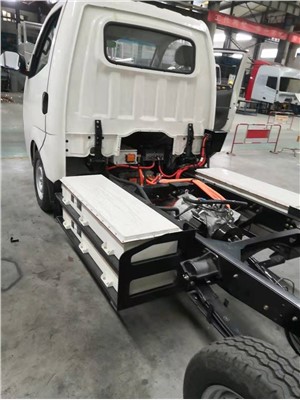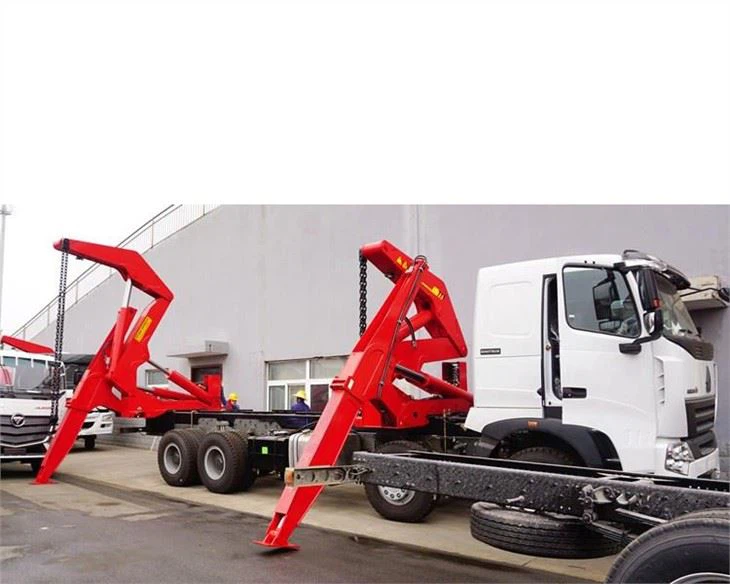Understanding Truck Garbage Compactors: The Essential Guide

Truck garbage compactors are vital vehicles in waste management, playing a crucial role in maintaining cleanliness and sanitation in urban environments. This article will explore everything you need to know about truck garbage compactors, including their functionality, types, advantages, applications, maintenance, and more.
What is a Truck Garbage Compactor?
A truck garbage compactor is a specialized vehicle designed to compress waste materials before transporting them to disposal sites. This compaction process reduces the volume of waste, allowing for more efficient loading and transport. These trucks are equipped with various mechanisms to automate the compaction process, enhancing productivity in waste management operations.
How Does a Truck Garbage Compactor Work?
The operation of a truck garbage compactor involves several key components:
- Collection Bin: Waste is collected in a designated bin mounted on the truck.
- Compaction Mechanism: Hydraulic systems compress the waste, reducing its volume significantly.
- Hydraulic System: Powers the compaction mechanism and the lift system for emptying waste.
- Dumping System: Allows the truck to empty its contents at disposal sites quickly.

Overall, these components work in harmony to facilitate the efficient collection, compaction, and transportation of waste.
Types of Truck Garbage Compactors
1. Front-Loader Garbage Compactors
Front-loaders are designed with front-facing loading mechanisms. They are ideal for commercial waste collection in businesses and industrial areas. Here’s a quick overview:
| Feature | Details |
|---|---|
| Loading Mechanism | Front-facing hydraulic arms |
| Compaction Ratio | Up to 4:1 |
| Applications | Commercial and industrial waste management |
2. Rear-Loader Garbage Compactors
Rear-loaders feature a rear access point for waste collection. They are commonly used in residential areas for household waste collection:
| Feature | Details |
|---|---|
| Loading Mechanism | Rear-opening container |
| Compaction Ratio | Up to 5:1 |
| Applications | Residential waste collection |
3. Side-Loader Garbage Compactors
Side-loaders utilize side-facing arms for waste collection. This type is suitable for areas with limited maneuverability:
| Feature | Details |
|---|---|
| Loading Mechanism | Side hydraulic arms |
| Compaction Ratio | Varies based on design |
| Applications | Urban and suburban waste collection |
Advantages of Truck Garbage Compactors

1. Efficiency in Waste Management
Truck garbage compactors reduce the number of trips needed to dispose of waste, maximizing efficiency in operations. With higher compaction ratios, these trucks can hold more waste, leading to cost savings.
2. Reduction in Environmental Impact
By compacting waste, these trucks help reduce greenhouse gas emissions associated with waste transport. Fewer trips mean lower fuel consumption, directly benefiting the environment.
3. Enhanced Safety
Modern truck garbage compactors are designed with safety features to protect operators and the public. Features such as automated arms and backup cameras ensure safer operations during waste collection.

Applications of Truck Garbage Compactors
1. Municipal Waste Collection
Cities utilize truck garbage compactors to collect residential waste, ensuring that neighborhoods remain clean and sanitary. Regular collection schedules are maintained for efficiency.
2. Commercial Waste Management
Businesses, factories, and retail establishments produce significant waste. Truck garbage compactors are vital for efficiently handling commercial waste, ensuring timely disposal while maintaining cleanliness.
3. Construction Sites
Construction projects generate large volumes of waste. Using garbage compactors enables construction firms to manage debris effectively, keeping job sites organized and safe.
Choosing the Right Truck Garbage Compactor
1. Assessing Waste Volume
Evaluate the average volume of waste produced in your operations. Choosing a compactor with the appropriate capacity is essential for efficient waste management.
2. Understanding Local Regulations
Be familiar with local regulations regarding waste disposal to ensure compliance. Some areas may have specific requirements for waste management, which can influence the type of compactor needed.
3. Budget Considerations
Analyze your budget for purchasing or leasing a garbage compactor. Consider both the upfront costs and long-term operational expenses, including maintenance and fuel consumption.
Maintenance Tips for Truck Garbage Compactors
1. Regular Inspections
Conduct regular inspections of the compactor and its components to ensure they operate smoothly. Look for wear and tear on hydraulic hoses, seals, and compacting plates.
2. Cleaning the Compactor
Regular cleaning helps prevent buildup and prolongs the lifespan of the truck. Pay particular attention to areas around the compaction chamber.
3. Lubrication of Moving Parts
Keep all moving parts well-lubricated to prevent friction and wear. This maintenance practice enhances the vehicle’s efficiency and reliability.
4. Replace Worn Out Parts
Address any worn-out components as soon as possible. Parts such as hydraulic cylinders and compacting blades are crucial for the truck’s effective operation.
Practical Examples of Truck Garbage Compactor Use
1. City Waste Collection Programs
Many cities have adopted organized waste collection programs that utilize truck garbage compactors. For example, New York City employs rear-loaders to handle the residential waste of millions of residents effectively.
2. Business Waste Management
Retail outlets like supermarkets often use side-loaders to streamline their waste collection processes. The compactors handle large volumes of cardboard and plastic waste, fitting perfectly into their operational schedules.
3. Community Clean-up Initiatives
Community organizations may rent garbage compactors for clean-up drives. This encourages local participation and helps reduce litter and waste in public spaces significantly.
Frequently Asked Questions (FAQs)
1. What is the compaction ratio of a truck garbage compactor?
The compaction ratio of a truck garbage compactor can vary, but typically it ranges between 3:1 to 5:1, depending on the type of compactor used.
2. How often should truck garbage compactors be maintained?
Regular maintenance is crucial. It is recommended to perform inspections and maintenance at least every 3 months or after every significant operation period.
3. Can truck garbage compactors handle hazardous waste?
No, truck garbage compactors are generally not designed for hazardous waste. Special vehicles and protocols are required for the collection of hazardous materials.
4. Are truck garbage compactors environmentally friendly?
Yes, by reducing the number of trips needed for waste disposal, truck garbage compactors help lower greenhouse gas emissions, making them more environmentally friendly compared to traditional waste collection methods.
5. What should be done if the compaction mechanism fails?
If the compaction mechanism fails, it should be serviced by a qualified technician immediately to prevent potential operational delays and ensure safety.
6. How do I choose the right compactor for my needs?
Consider factors such as waste volume, type of waste, your budget, and the local regulations that may influence your decision when selecting a garbage compactor.
